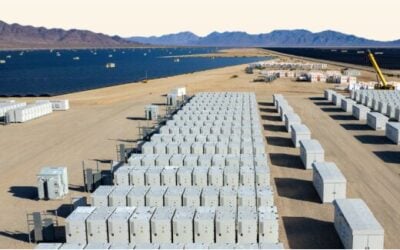S&C Electric Europe has used locally-sourced lead acid batteries combined with 80W solar panels to provide electricity for two primary schools in Zambia.
In partnership with Swansea-based Discovery Student Volunteering and the Siavonga Nutrition Group, the off-grid technologies help the schools in Siavonga provide Computer Science lessons, without the need for mains electricity.
The schools use credit-card sized Raspberry Pi mini computers, from Cambridge University, which have low power consumption and are a designed for the developing world.
More than two-thirds of the population of sub-Saharan Africa (SSA) is still without electricity, with the figure rising to more than 85% in rural areas.
Try Premium for just $1
- Full premium access for the first month at only $1
- Converts to an annual rate after 30 days unless cancelled
- Cancel anytime during the trial period
Premium Benefits
- Expert industry analysis and interviews
- Digital access to PV Tech Power journal
- Exclusive event discounts
Or get the full Premium subscription right away
Or continue reading this article for free
Writing in a PV Tech Storage blog, Andrew Jones managing director of S&C Electric Europe, said there is strong potential in off-grid solar, but it cannot rely on support from a strong grid, so intermittency problems from cloud, shadows and dust are amplified.
He said: “In addition to providing benefits of smoothing intermittent PV output, energy storage can bring many other benefits such as energy backup, energy arbitrage or energy supply.”
S&C, which claims responsibility for 20% of the world’s in-service battery energy storage capacity, is working with a host of companies to explore energy storage projects across Africa.
Tony Rooney, S&C managing director, said: “By combining energy storage with renewables technologies like solar, communities can now access power without being connected to the grid.”
International Energy Agency figures, quoted in a Whitehouse fact sheet on Obama’s Power Africa programme, show that sub-Saharan Africa will require more than US$300 billion investment to build out the continent’s power generation and transmission systems to achieve universal electricity access by 2030.
PV Tech Storage reported last week that microgrid developer Powerhive recently became the first private utility in Kenya after being granted a licence to sell electricity to the public following the running of pilot schemes in four villages. The Kenyan government recognised that the fastest and least expensive approach to reach 100% electricity access would be to allow private investment in distributed generation infrastructure, according to Zachary Ayieko, managing director, Powerhive East Africa.
Raspberry Pi





